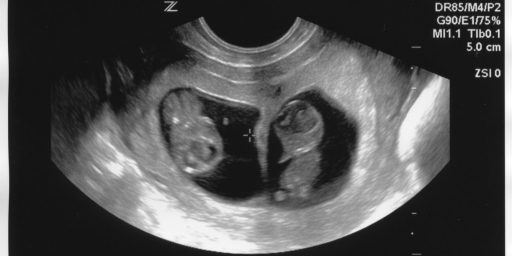California Supremes: Gay Egg Donors Responsible
California’s Supreme Court ruled yesterday that gays who agree to raise children together are legally responsible for them if the relationship fails.
High Court Protects Kids of California Gays (AP)
In the latest ruling to recognize rights of same-sex couples, the California Supreme Court has said gay and lesbian couples who raise children are lawful parents and must provide for their children if they break up. The state’s custody and child support laws that hold absent fathers accountable also apply to estranged gay and lesbian couples who used reproductive science to conceive, the high court ruled Monday. Being a legal parent “brings with it the benefits as well as the responsibilities,” said Justice Joyce Kennard.
The decision comes a month after the justices ruled that a California domestic partner law grants gays and lesbians who register with the state many of the same rights as married couples, but does not allow them to marry. “The court is now protecting the children of same sex parents in gay families in the same way children are protected with heterosexual couples in heterosexual families,” said Jill Hersh, who argued the case of a Marin County woman who was granted the right to be the second mother of twins after the birth mother moved out of state.
However, groups opposing gay marriage decried the justices’ actions. “Today’s ruling defies logic and common sense by saying that children can have two moms,” said attorney Mathew Staver of Liberty Counsel. “That policy establishes that moms and dads as a unit are irrelevant when it comes to raising children.”
The ruling stemmed from three cases involving lesbian parents. In the Marin County case, the court gave parental rights to Hersh’s client, who had donated her eggs to her lesbian lover. The partner then had twins. After the couple split up, a lower court said the egg donor was not a legal parent because she did not give birth. Lower courts and dissenting justices noted the woman, K.M., voluntarily signed a document declaring her intention not to become a parent of any resulting children, and should not be granted parental status. But Justice Carlos Moreno, writing for the 4-2 majority, said a woman who supplies eggs to help impregnate her lesbian partner, with the understanding the child will be raised in their home, cannot evade her responsibility to that child.
This distinction is key and the ruling hardly “defies logic.” The Court did not pass judgment on whether having a mom and a dad was preferable to having “two moms;” rather it ruled that those who have contractually agreed to raise a child together must honor that agreement. Similarly, a judge who rules that a drunken wife beater must pay child support is not advocating violence and alcoholism as the proper parental model.






In the latest ruling to recognize rights of same-sex couples, the California Supreme Court has said gay and lesbian couples who raise children are lawful parents and must provide for their children if they break up.
Doesn’t this ruling enforce responsibilities of same sex couples, not rights?
It certainly doesn’t defy logic. As a matter of fact, it makes complete and total sense. I honestly can’t believe that a court ruling had to be made to make child support happen. If you want children then obviously you’re responsible for them for the rest of your life. To argue otherwise is an attempt to pull a fast one on society.
Two sides of the same coin, really. It’s a responsibility for the parent ordered to pay child support and a right for the one receiving it.
Essentially, gays entering into an agreement to raise a child together have the same rights of enforcement as straights would. Presumably, the ruling would be the same were this an unmarried straight couple.